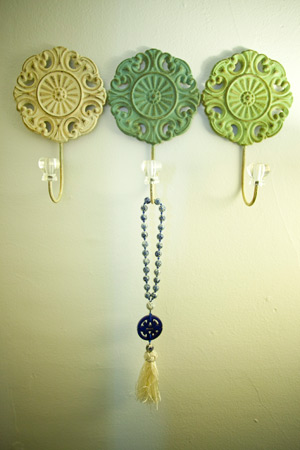
How does Acupuncture work?
Acupuncture consists of placing hair-thin needles at specific points on the body to promote healing and improve functioning. In traditional terms, acupuncture stimulates and balances the qi, or energy, of the body. This energy runs in channels throughout the body and along the body’s surface to nourish the tissues. This flow of energy can become blocked or depleted resulting in pain or illness. Acupuncture helps the body’s internal organs and muscle tissues to regain a healthy circulation of energy.
In modern scientific terms, acupuncture stimulates the nervous system and induces neurotransmitter and hormone release into the muscles, spinal cord, and brain. This either changes the experience of pain or triggers the release of other chemicals which influence the body’s self-regulating systems.
From both perspectives, acupuncture is widely accepted as an effective treatment for many physical illnesses, as well as psychological and emotional disharmonies.
How long does it take to notice results?
Treatment efficacy depends on the severity and nature of the condition. Acute conditions may respond to 2 or 3 treatments, while chronic conditions may require a series of 5 to 15 treatments or more. Some degenerative conditions may require ongoing, long-term treatment. For healthy individuals with no complaints, preventive care may be achieved by receiving treatments at least once with each change of the season.

Is Acupuncture painful?
Not really! Receiving an acupuncture treatment is nothing like getting a booster shot with a hypodermic needle, or even having a needle inserted into your vein. Acupuncture needles are hair-thin and flexible, not hollow. Most patients don’t even feel them being inserted. What may be felt is a dull ache, a quick insect bite, or a warm intensity – these sensations are the feeling of Qi coming to the surface as it’s accessed by the stainless steel needle. Some patients don’t feel the needles at all. Occasionally, a needle can cause a brief “ouch!” but that sensation quickly dissipates within a few seconds. If not, the acupuncturist will remove the needle immediately. Each patient’s sensitivity to needles is different, since each patient’s Qi is different. Once all the needles have been inserted, most patients fall into a meditative or nap-like state. Needles are left in for 20-30 minutes, and most people feel deeply relaxed during the treatment.
Are the needles safe and sterile?
Yes. Acupuncture needles are extremely fine, sterile, disposable, and are a FDA approved medical device. After treatment, these single use needles are disposed of. New needles are used for each treatment. A licensed acupuncturist has undergone years of training for their safe implementation.
What is Qi (chi)?
To better visualize the concept of Qi, blood, and the meridians, think of the meridians as a river-bed, over which water flows and irrigates the land; feeding, nourishing and sustaining the substance through which it flows. (In Western medicine, the concept would be likened to the blood flowing through the circulatory system.) If a dam were placed at any point along the river, the nourishing effect that the water had on the whole river would stop at the point the dam was placed. The same is true in relation to Qi, blood and the meridians. When the Qi and blood becomes blocked, the rest of the body that was being nourished by the continuous flow, now suffers. Illness and disease can result if the flow is not restored.
Acupuncture is one tool used to restore the normal flow of Qi and blood in the body, by inserting needles into the acupuncture points (located on the meridians) any residing blockages, or dams, are cleared, thus freeing the river to better feed the body in its entirety. If detected early, organ malfunction and blood and /or Qi stagnation may respond well to Chinese Medicine with an excellent chance for a complete recovery.
Does medical insurance cover Acupuncture treatment?
An increasing number of insurance companies are now covering acupuncture and Traditional Chinese Medicine. Check with your insurance provider prior to your treatment to find out if your policy covers acupuncture, and the specifics of coverage.
If your policy covers acupuncture we are happy to bill your insurance company. You are responsible for your deductible and any applicable co-pay.
How many treatments do I need?
Many conditions can be alleviated very rapidly with acupuncture and Chinese herbs. Chronic illnesses typically take longer to treat, whereas acute problems generally respond much faster. As with any form of medical care, the patient’s diet and lifestyle will affect the outcome and course of treatment.
How can I prepare for my first acupuncture treatment?
It is best to eat a light meal or snack before your treatment. Sometimes a person who has not eaten may feel lightheaded during or after an acupuncture treatment. Wear loose clothing so that your arms and legs below the elbows and knees, as well as the abdomen, are accessible. Do not engage in strenuous activity, drink alcohol, or ingest heavy meals before or after your treatment.
